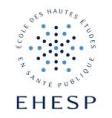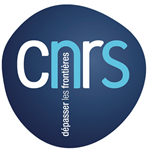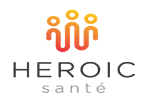IAE Lille University School of Management,
Lumen ULR 4999,
l’École des Hautes Études en Santé Publique,
FSEG of UCL,
ISTEC,
CERI,
ADEM Santé
organize at
ISTEC Paris
on
29th June 2022
7th Health Marketing International Day
with support of:
Association Française du Marketing (AFM) and Association de Recherche Appliquée au Management des Organisations de Santé (ARAMOS),
and
in partnership with:
Fédération Hospitalière de France (FHF), Strat Adviser, Master 2 - MESS and Adem Santé.
Call for papers
Deadline for submissions: 1st April 2022
While not exhaustive, the main topic addressed during this 7th Health Marketing International Day
will be
Evolution or revolutions in health marketing linked to Covid-19 pandemic?
Health marketing refers to systematic application of marketing principles in the very large, heterogeneous and complex field of human health (Crié and Chebat, 2013). The Centers for Disease Control and Prevention (CDC) defines it as a movement that seeks to create, communicate, provide information or even propose interventions using consumer-centered and science-based strategies in order to protect and promote population health.
Health marketing refers to several sub-disciplines such as social marketing (Gallopel-Morvan et al., 2019), service marketing, consumer behavior, hospital marketing, pharmaceutical marketing, public health, health education, sociology, or psychology (Crié and Chebat, 2013; Stremersch, 2008; Bernhardt, 2006).
Application field of health marketing is on a broad because it addresses several actors in its value chain, namely: patients, governments, financial intermediaries (private or public insurance), actors healthcare (hospitals, doctors, caregivers, healthcare networks, etc.), product intermediaries (pharmacists, distributors, purchasing centers) or even the pharmaceutical diagnostic and equipment industries (Stremersch and Van Dyck, 2009; Stremersch, 2008; Burns, 2005).
Health marketing is impacted than ever by the Covid-19 pandemic. Its recommendations and its implementation become essential to better control the pandemic and influence the acceptance and voluntary cooperation of individuals and populations towards preventive measures against the spread of Sars-Cov-2 (Lee, 2020; Odigbo et al. ., 2020). This JIMS 2022 offers innovative and thoughtful discussions on the key issues of health marketing in the face of the Covid-19 pandemic, but remains, of course, completely open to the subjects usually dealt with.
|
References:
- Bernhardt, J. M. (2006). Improving health through health marketing. Preventing Chronic Disease, 3(3).
-
Crié, D., & Chebat, J. C. (2013). Health marketing: Toward an integrative perspective. Journal of Business Research, 66(1), 123-126.
- Burns, L. R. (2005). The Business of Healthcare Innovation. Cambridge, U.K.: Cambridge University Press.
-
Gallopel-Morvan., Nguyen Thanh V., Arwidson P., Hastings G. (2019), Marketing social. De la compréhension des publics au changement de comportement, presses de l’ehesp.
-
Lee, N. R. (2020). Reducing the spread of COVID-19: A social marketing perspective. Social Marketing Quarterly, 26(3), 259-265.
-
Lederberg, J., Hamburg, M. A., & Smolinski, M. S. (Eds.). (2003). Microbial threats to health: emergence, detection, and response.
-
Stremersch, S., & Van Dyck, W. (2009). Marketing of the life sciences: A new framework and research agenda for a nascent field. Journal of Marketing, 73(4), 4-30.
| |
 Introduction
Introduction PDF: Call for papers HMID - VII
PDF: Call for papers HMID - VII 





 Our partners
Our partners












